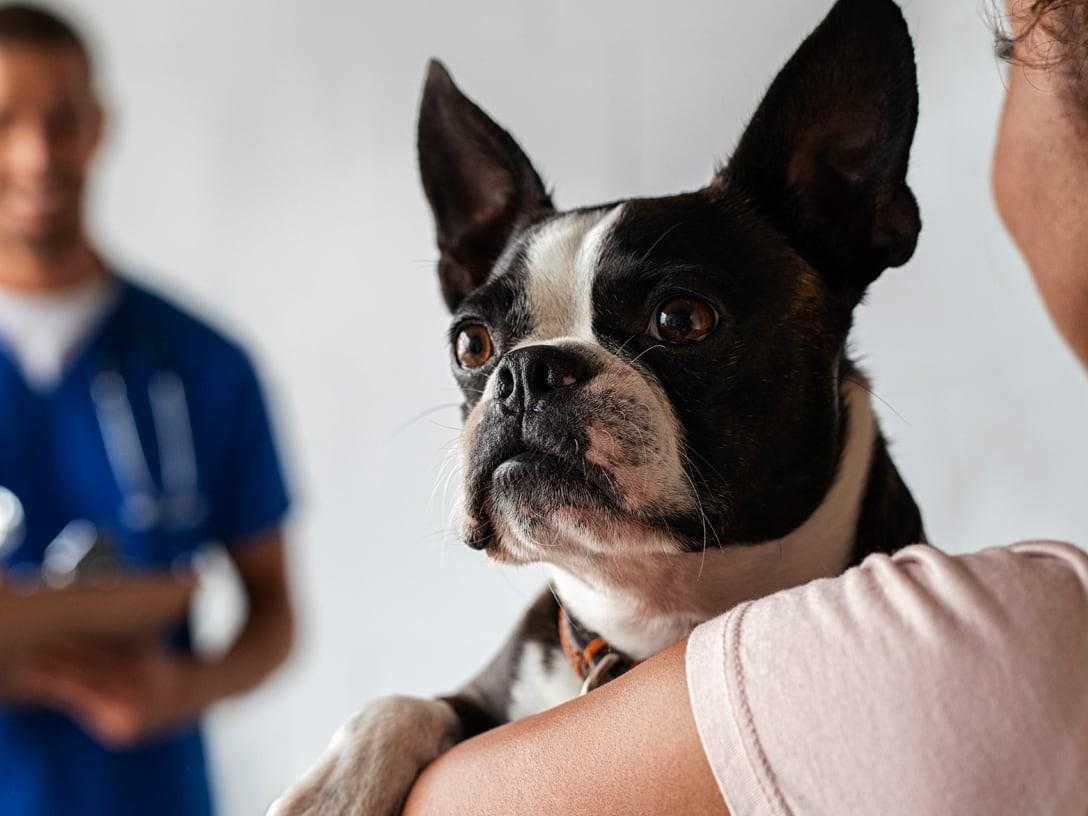Hyperthyroidism, a condition characterized by an overactive thyroid gland, is relatively uncommon in dogs. However, it's a serious ailment that demands attention, as it can significantly impact your canine companion's health and quality of life.
Understanding Hyperthyroidism in Dogs
The thyroid gland, a small butterfly-shaped organ located in the neck, plays a critical role in regulating metabolism. It produces hormones, primarily thyroxine (T4), that influence energy expenditure, heart rate, muscle function, and more. In hyperthyroidism, the thyroid gland goes into overdrive, producing excessive hormones that disrupt the body's delicate balance.
Symptoms of Hyperthyroidism: Spotting the Signs
Recognizing the signs of hyperthyroidism is essential for early diagnosis and treatment. While the symptoms can vary in severity, keep an eye out for the following:
Weight Loss and Increased Appetite: A hallmark of hyperthyroidism, your dog might lose weight despite eating more than usual.
Excessive Thirst and Urination: Increased metabolism can lead to dehydration and frequent urination.
Behavioral Changes: Hyperactivity, restlessness, anxiety, or even aggression can occur.
Gastrointestinal Upset: Vomiting and diarrhea are common due to the accelerated metabolic rate.
Cardiovascular Issues: Rapid heart rate, heart murmurs, or even heart failure can develop in severe cases.
Neck Swelling: A noticeable lump or enlargement in the neck area might indicate a thyroid tumor.
Causes of Hyperthyroidism in Dogs
The most common cause of hyperthyroidism in dogs is a thyroid tumor, often cancerous. In rare instances, it can also be triggered by:
Overmedication for Hypothyroidism: Excessive doses of thyroid hormone replacement medication for hypothyroidism can lead to hyperthyroidism.
Raw Food Diets: Some raw foods naturally contain high levels of thyroid hormones, which can contribute to the condition.
Diagnosing and Treating Hyperthyroidism
If you suspect your dog has hyperthyroidism, your veterinarian will perform a thorough examination and conduct blood tests to measure thyroid hormone levels. Further diagnostics, like imaging or biopsies, might be necessary to evaluate the presence of a tumor.
The treatment approach for hyperthyroidism depends on the underlying cause:
Surgical Removal of Thyroid Tumor: This is the most common treatment for dogs with thyroid tumors.
Radioactive Iodine Therapy: While more prevalent in cats, this treatment can be considered for dogs in certain cases.
Medication: Medications can be used to manage hyperthyroidism not caused by a tumor, but they require lifelong administration.
Dietary Management: A low-iodine diet might be recommended in some situations.
What Dog Breeds are Prone to Hyperthyroidism?
While any dog breed can develop hyperthyroidism, certain breeds, such as Beagles, Boxers, Golden Retrievers, and Siberian Huskies, are more predisposed to thyroid tumors. Older dogs are also at a higher risk.
Prognosis and Prevention
The prognosis for dogs with hyperthyroidism varies depending on the underlying cause and the stage of the disease. Early detection and treatment significantly improve the chances of a positive outcome.
While there's no guaranteed way to prevent hyperthyroidism, you can take steps to reduce the risk:
Regular Vet Checkups: Routine examinations help identify any potential issues early on.
Balanced Diet: Provide a high-quality, balanced diet to support your dog's overall health, including thyroid function.
Caution with Raw Diets: If you feed your dog a raw diet, consult your vet to ensure it's nutritionally balanced and doesn't contain excessive thyroid hormones.
Monitor Thyroid Medication: If your dog takes thyroid medication, ensure they receive the correct dosage and have regular checkups to monitor hormone levels.
By understanding the causes, symptoms, and treatment options for hyperthyroidism, you can be a proactive advocate for your dog's well-being. If you notice any signs of this condition, seek veterinary attention promptly. With early diagnosis and appropriate treatment, you can help your furry friend manage hyperthyroidism and enjoy a good quality of life. Remember, a healthy thyroid is essential for a happy and energetic canine companion!
About the Author
This post was reviewed by a DVM from Eagle Glen Veterinary Clinic, a trusted provider of compassionate pet care in Los Angeles since 1988. Connect with them on Instagram (@eagleglen.vc) or visit their website (eagleglenvets.com) to learn more about their services.

With 10 years of experience as a pet parent, I aim to empower pet owners with insights into pet insurance and maintaining their pet's well-being. I aspire to be a trusted source, combining knowledge with a commitment to the welfare of our beloved pets.

Eagle Glen Veterinary Clinic has been serving pets in LA since 1988! The vets and technicians have a passion for pet care and the skill to give excellent service! Visit https://www.instagram.com/eagleglen.vc/ or https://eagleglenvets.com/index.cfm for more.
Hyperthyroidism in Animals - Hyperthyroidism in Animals. (n.d.). In Merck Veterinary Manual. Retrieved September 23, 2024, from https://www.merckvetmanual.com/endocrine-system/the-thyroid-gland/hyperthyroidism-in-animals#Treatment_v3271020
Hyperthyroidism in Dogs. (n.d.-a). In Small Door Veterinary. Retrieved September 23, 2024, from https://www.smalldoorvet.com/learning-center/medical/hyperthyroidism-in-dogs
Hyperthyroidism in Dogs. (n.d.-b). In www.petmd.com. Retrieved September 23, 2024, from https://www.petmd.com/dog/conditions/endocrine/c_dg_hyperthyroidism
Hyperthyroidism in Dogs: Symptoms, Causes, and Treatments. (n.d.). In American Kennel Club. Retrieved September 23, 2024, from https://www.akc.org/expert-advice/health/hyperthyroidism-in-dogs/












